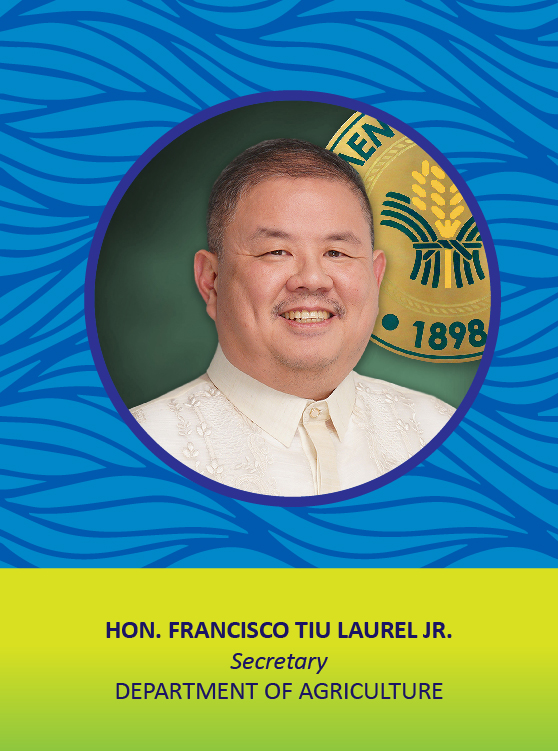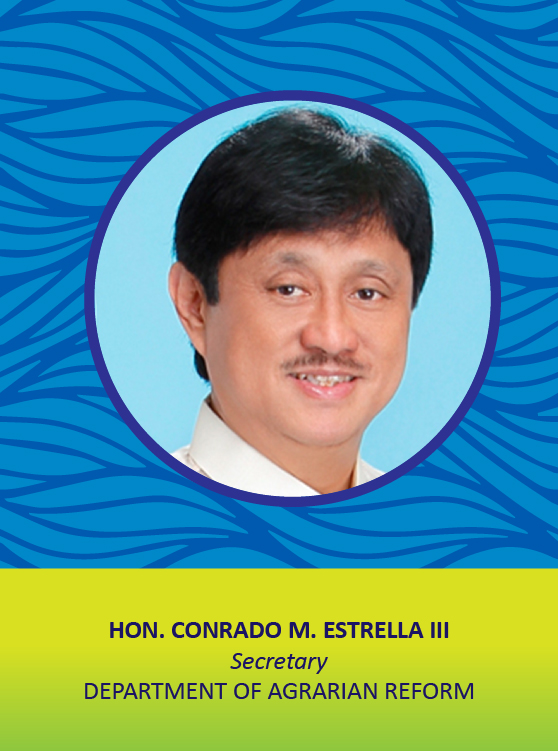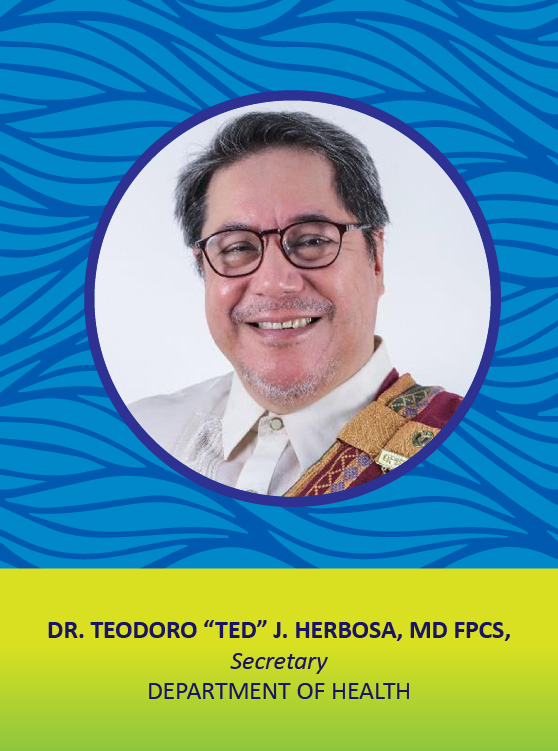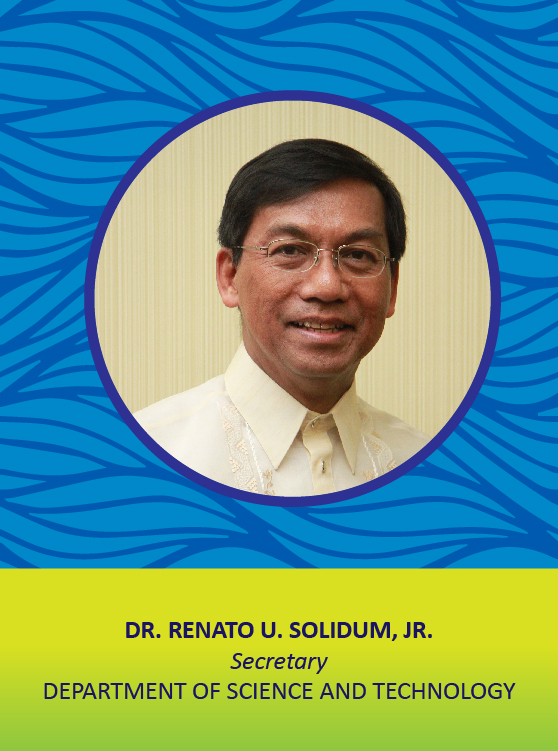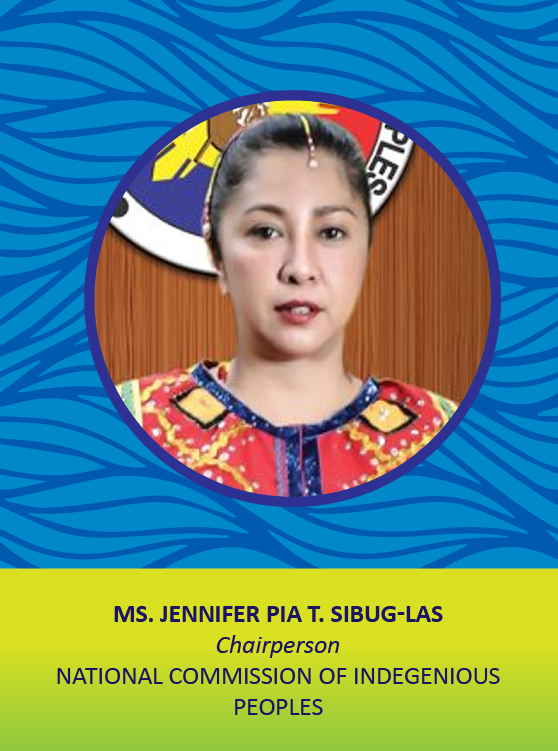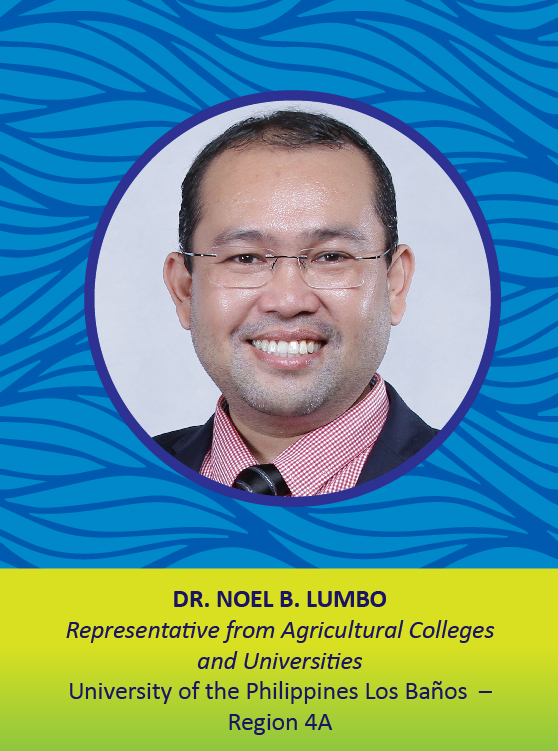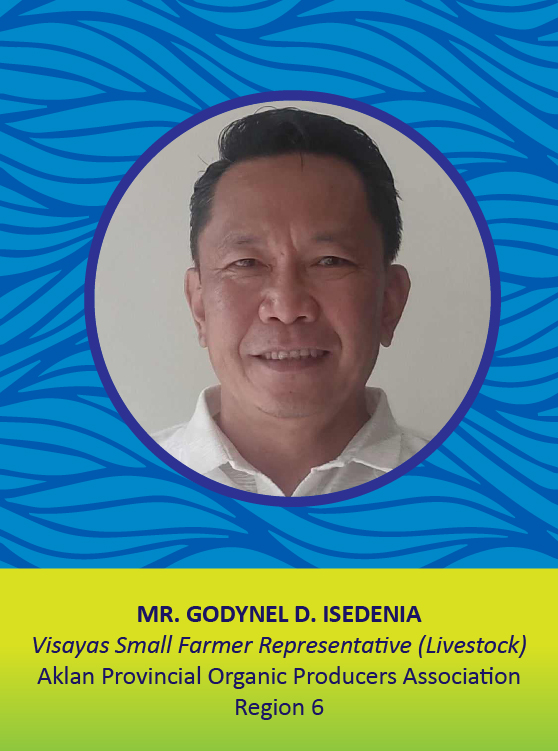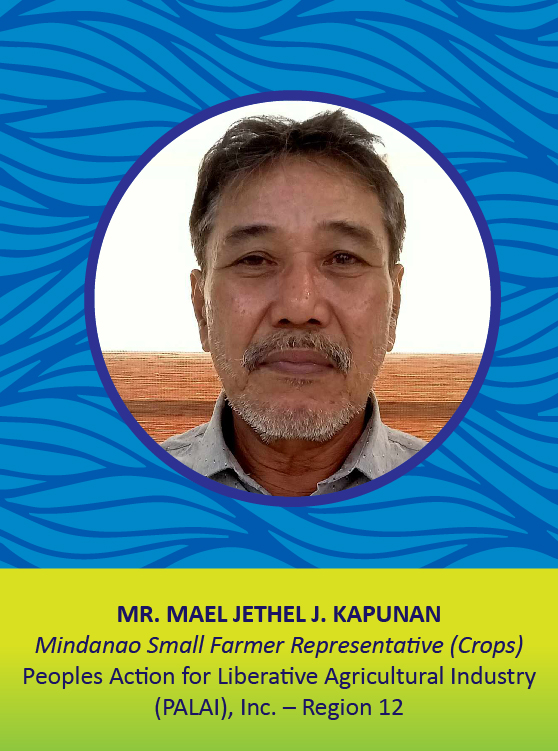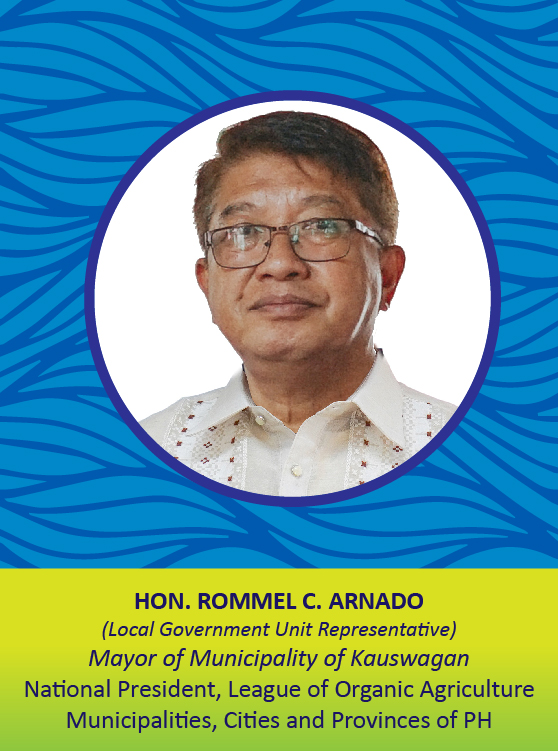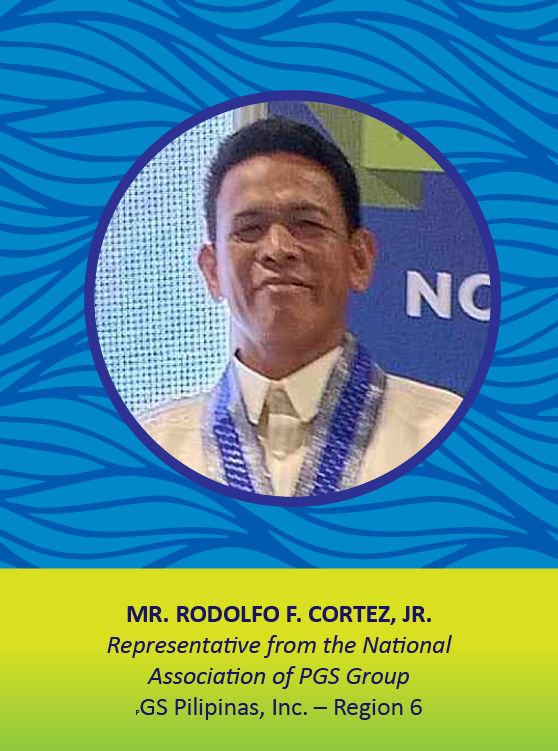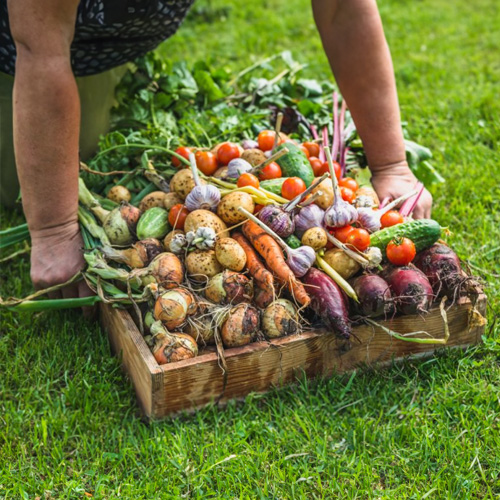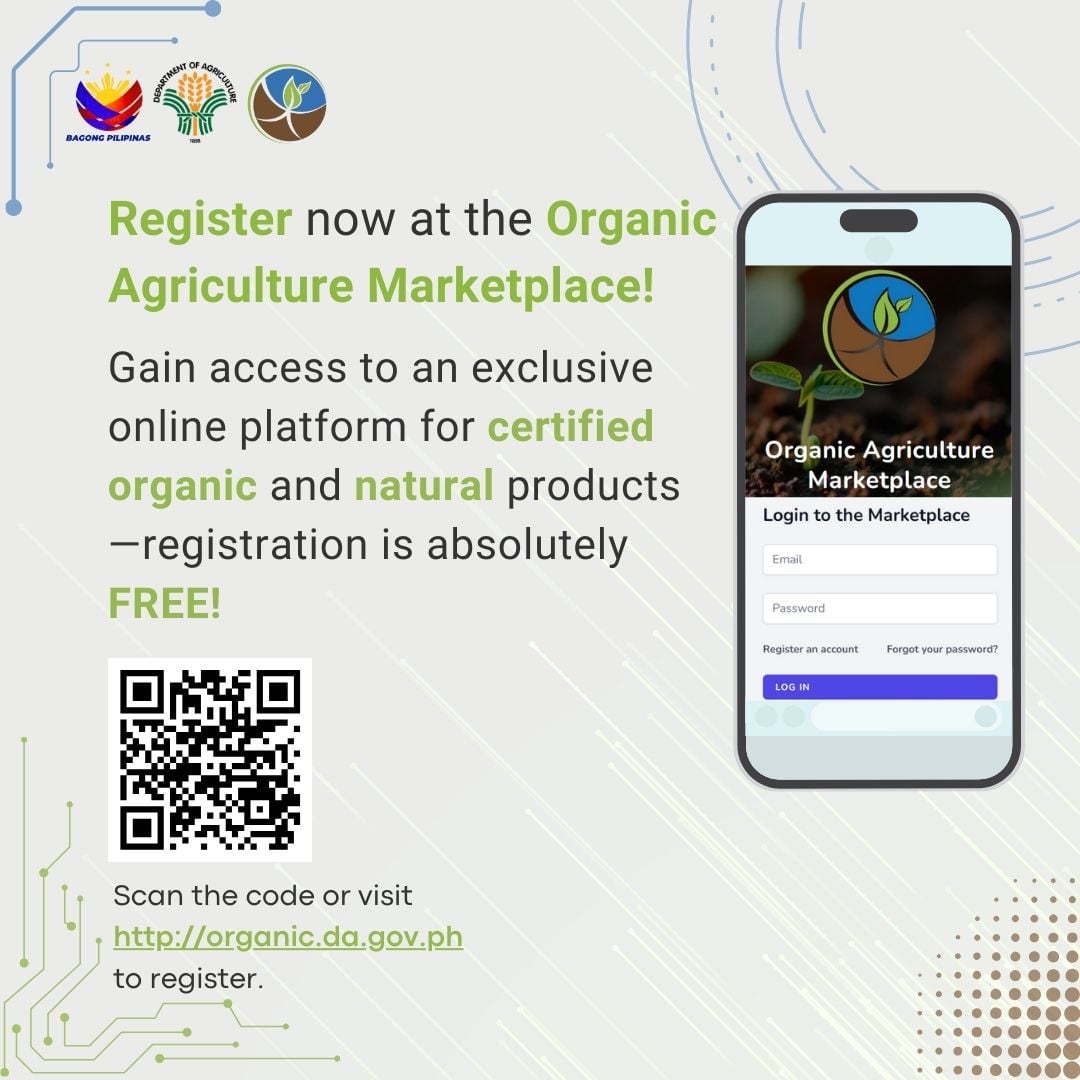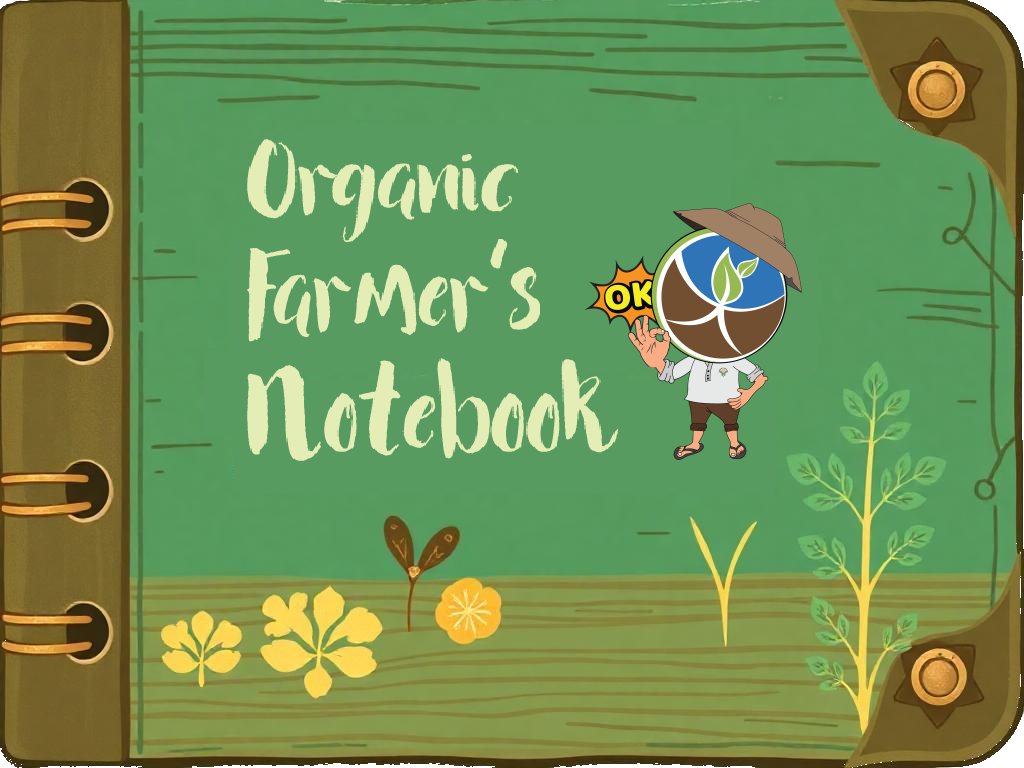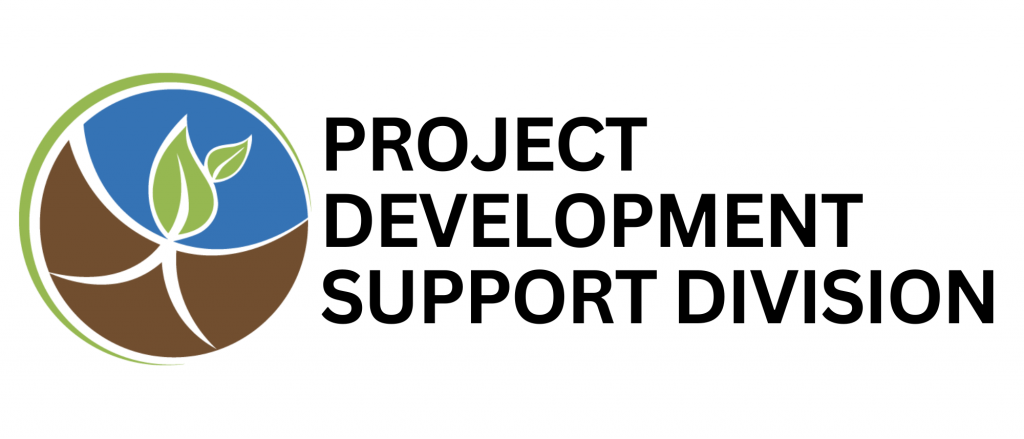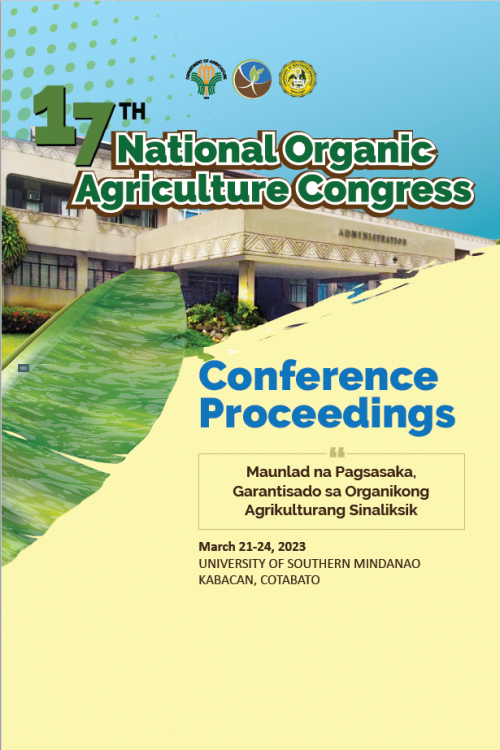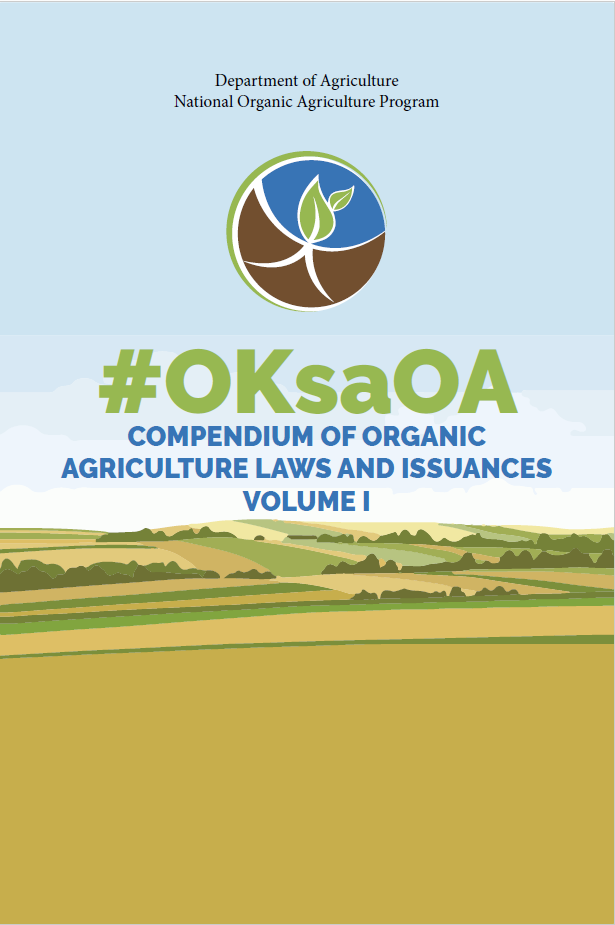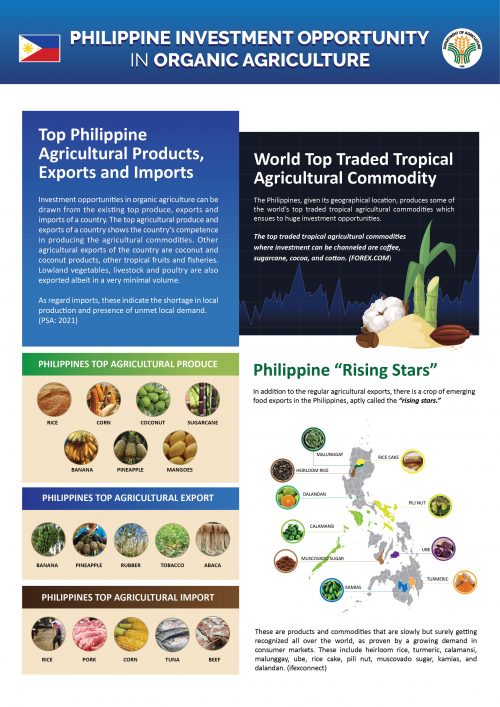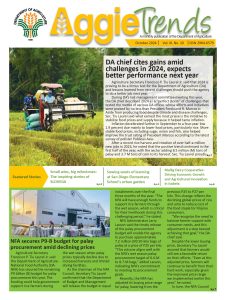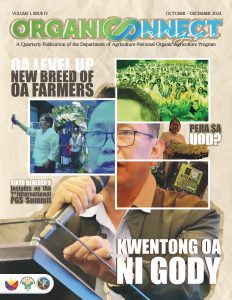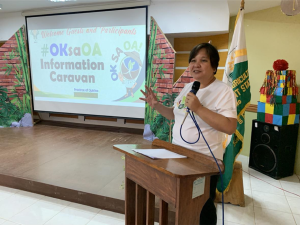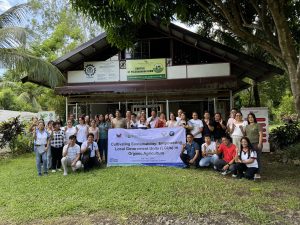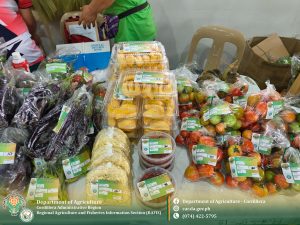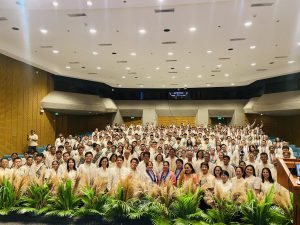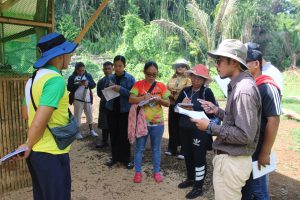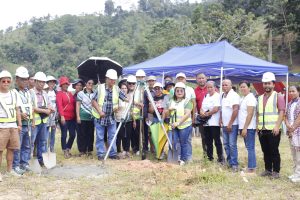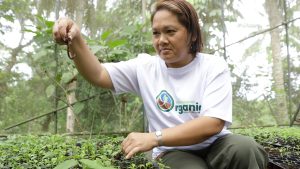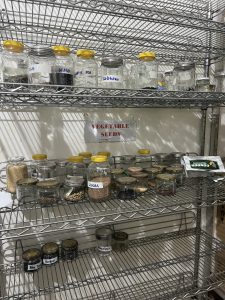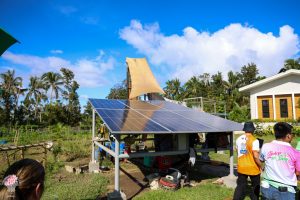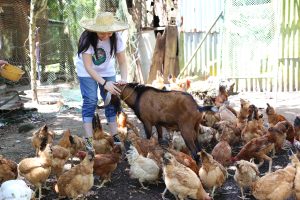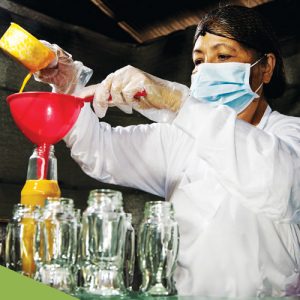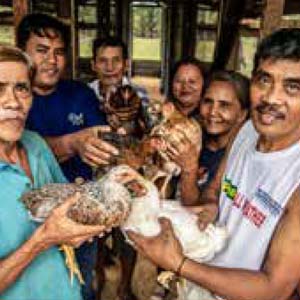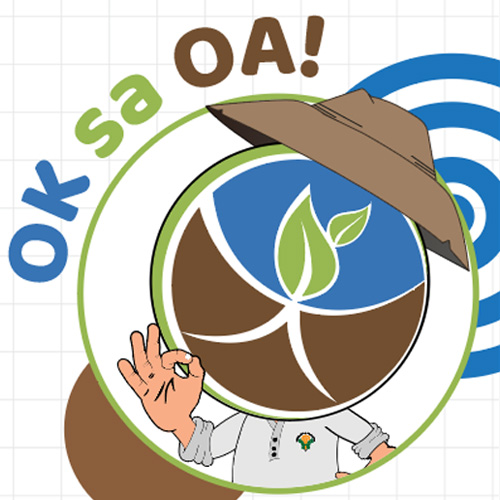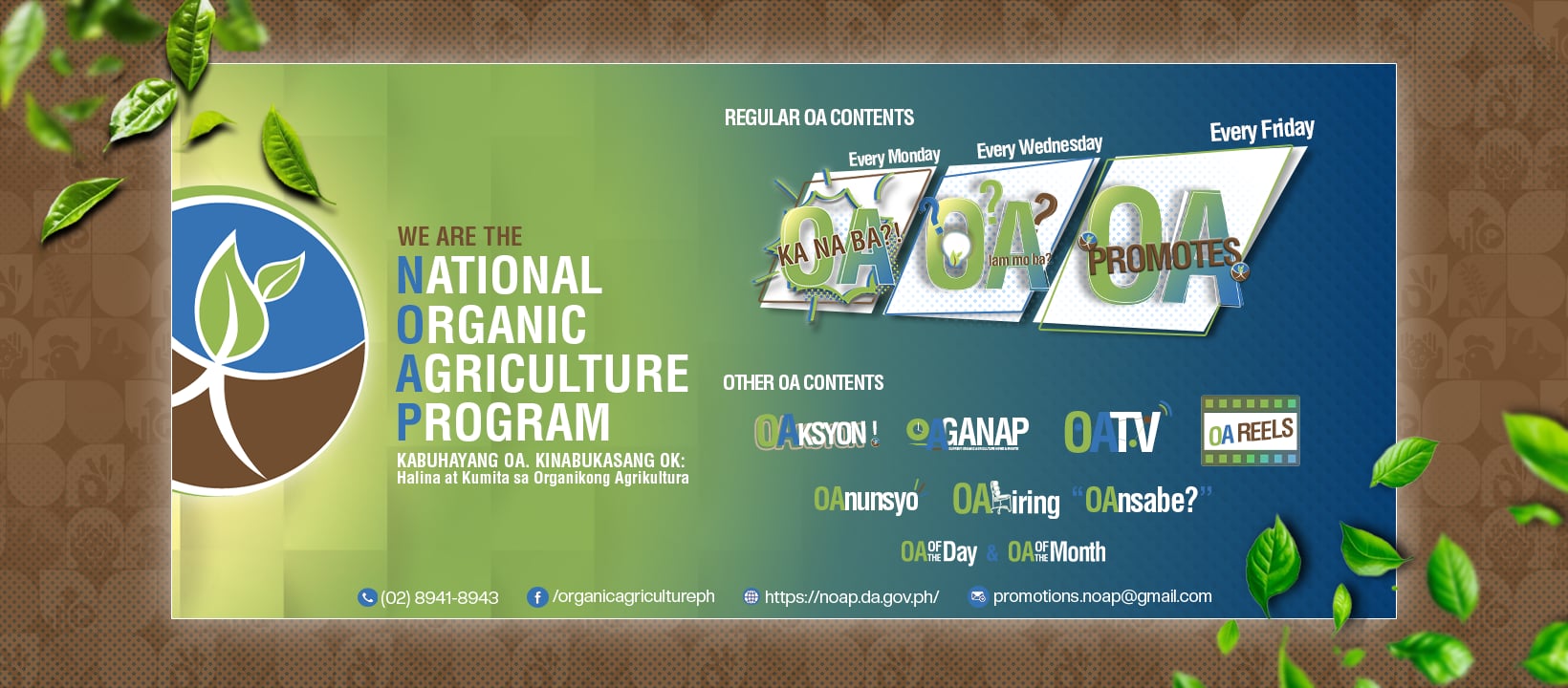
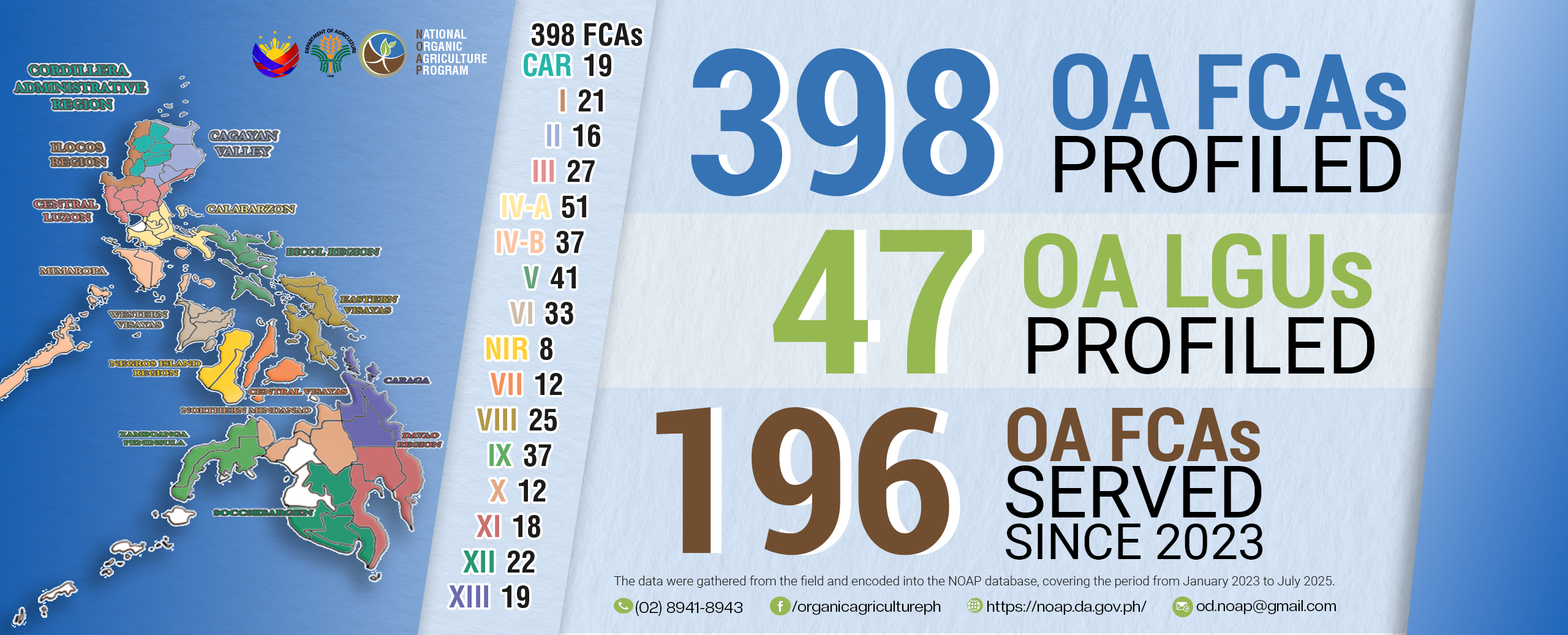
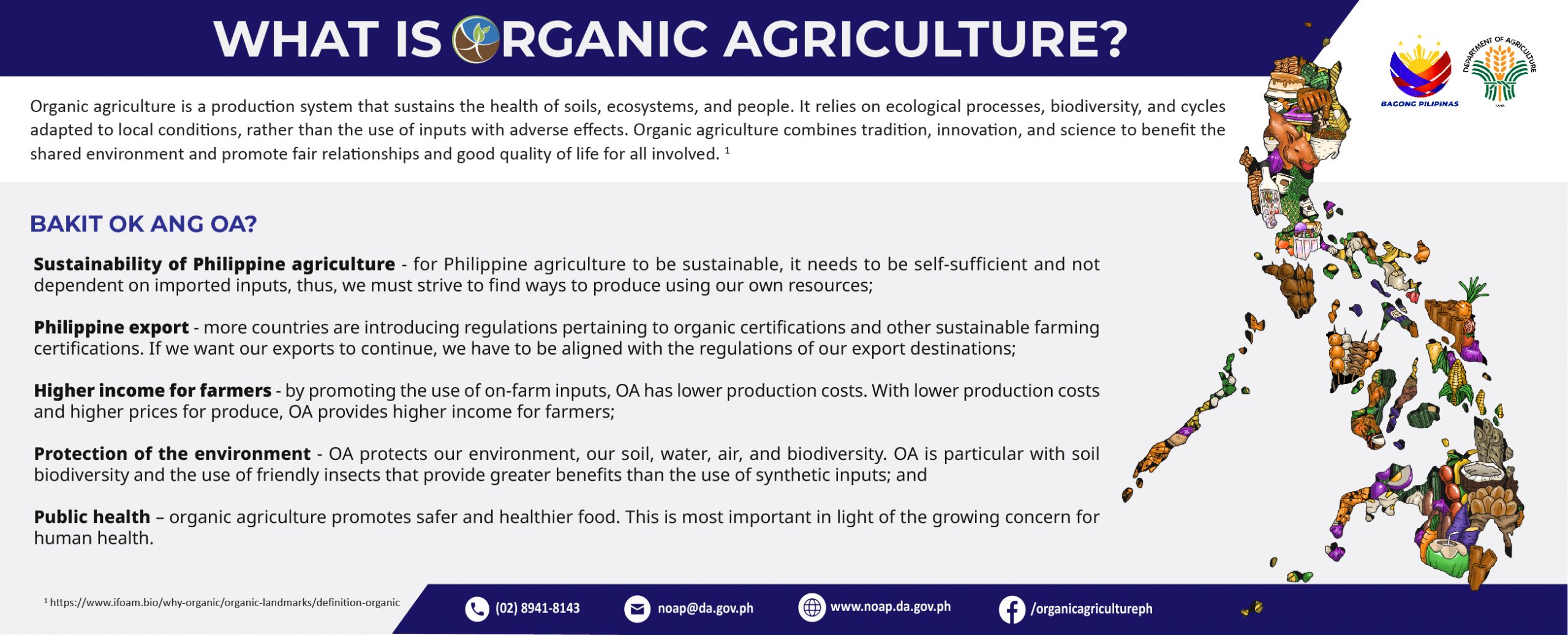
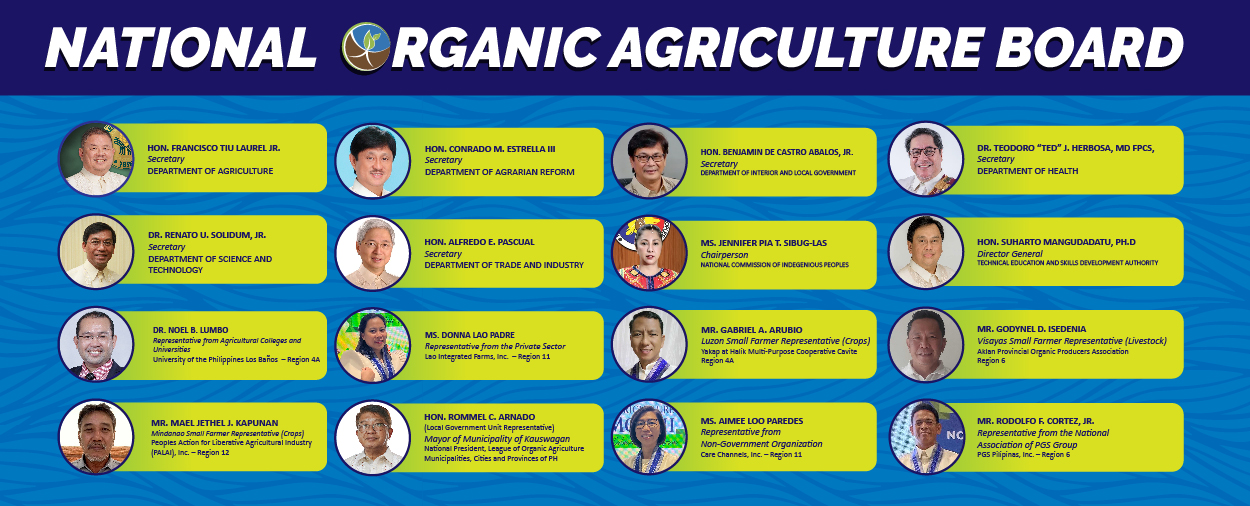
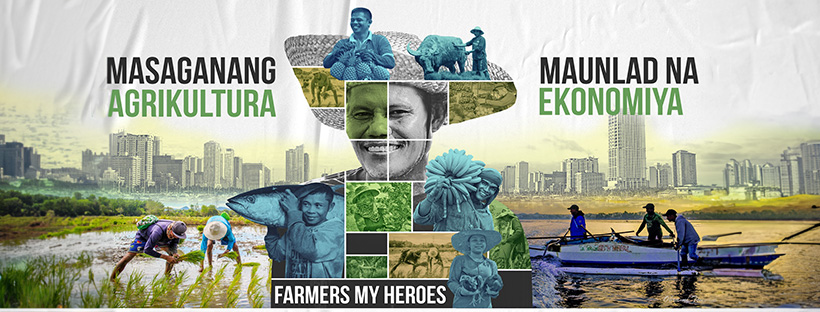
NOAP IN ACTION
1st National Youth Internship Program for Organic Agriculture (YIPOA) Graduation Ceremony
PICC Complex, Pasay, Metro Manila
December 17, 2024
1st International PGS Summit
Seda Vertis North, Quezon City
November 26-28, 2024
NOAP EXPLORES COMPOSTING WORMS IN LOS BAÑOS
Los Baños, Laguna
March 12, 2024
NOAP TOURS ESSI'S COCO POT MACHINERIES IN RIZAL & BIOWASTE CONVERTER IN QUEZON CITY
Quezon City
March 12, 2024
DR. SAN JUAN VISITS CATUBIG MAYOR TO DISCUSS NOAP'S LARGE RUMINANTS DISPERSAL PROGRAM
Eastern Visayas region
March 8, 2024
DA NOAP & DILG'S LGA INITIATES CONVERGENCE TO EXPAND OA THROUGH LOCAL CHIEF EXECUTIVES
ATI Building, Elliptical Road, Diliman Quezon City
March 6, 2024
GRAND OPENING OF NEDEX ORGANIC HUB IN NUEVA ECIJA
Nueva Ecija
March 1, 2024
NOAP JOINS INTER-AGENCY CONSULATION ON AGRI-WASTE PROJECTS LED BY KOICA & GGGI
Philippines
February 29, 2024
NOAP CHIEF ACCOMPANIES PH-GERMANY CONSUL GENERAL FOR A PHILMECH & PCC TOUR
Nueva Ecija
February 26, 2024
THE INAUGURATION OF THE BUREAU OF ANIMAL INDUSTRY (NSPRDC)
Lagalag, Tiaong, Quezon
February 23, 2024
NOAP MEETS AGUSAN DEL SUR OA PARTNERS
Agusan del Sur
January 31, 2024
HAPPENING NOW!
Sibagat, Agusan del Sur
January 29, 2024
NOAP AT THE HEALTH & WELLNESS CONFEX
SMX Convention Cebter Manila
January 27, 2024
OK SA OA ANG AKLAN!
Organic Farming, LGU Aklan
January 16, 2024
SEMINAR ON ORGANIC FARMING AT PILAR, SORSOGON
Pilar, Sorsogon
January 9, 2024
NOAP discusses Organic Agriculture Livelihood Program on DZRH News Television
DZRH News Television
November 17, 2023 | 5:00 PM
NOAP visits the Sagay Farmers in Western Visayas
Sagay City, Negros Occidental
November 17, 2023 | 5:00 PM
Ikaw ay Kampeon at Outstanding sa Organic Agriculture!
Check out this quick Program overview to know what the National Organic Agriculture Program has to offer!
To carry out the policy and the program provided in the amended Organic Agriculture Act, the National Organic Agriculture Board (NOAB) is created which shall be the policy-making body and shall provide direction and general guidelines for the implementation of the National Organic Agriculture Program.
OA FEATURED NEWS
-
German government takes first step towards more organic farming
Euractiv.de | Feb 22, 2023
At the end of 2021, Germany’s government coalition agreed that organic farming should account for 30% of arable land by 2030, surpassing the EU-wide target of 25%.
Read More -
PH 'ube' delicacy hits European market
The Manila Times | November 12, 2023
THE popular Filipino ube (purple yam) delicacy is being promoted to cash in on the opportunity being offered by the growing "organic market" in Europe.
Read More
DA TOP STORIES
-
DA pledges to work double-time to tame food prices, keep inflation low
DA Press Office | 5 August 2025
-
Sharp drop in palay prices prompts President Marcos to consider rice import suspension, tariff hike — DA chief
DA Press Office | 5 August 2025
-
DA chief pushes revision of coco trust fund law to revitalize Industry
DA Press Office | 4 August 2025
-
DA backs “Green Lane” plan for agri investments; signs joint circular
DA Press Office | 4 August 2025
-
DA chief says smuggled mackerel fit for humans, distribution eyed
DA Press Office | 1 August 2025
NOAP TOP STORIES
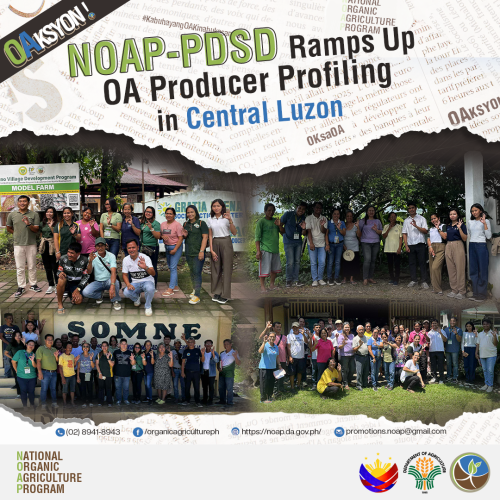
NOAP–PDSD Ramps Up OA Producer Profiling in Central Luzon
NOAP–PDSD Ramps Up OA Producer Profiling in Central Luzon By Jemiema Arro, PDSD-NOAP To strengthen Central Luzon’s organic agriculture landscape through accurate, accessible, and data-driven decision-making, the National Organic Agriculture Program – Project Development Support Division (NOAP–PDSD), in coordination with the Regional Organic Agriculture Program (OAP) of Region III, conducted a Monitoring and Evaluation (M&E) continue reading : NOAP–PDSD Ramps Up OA Producer Profiling in Central Luzon
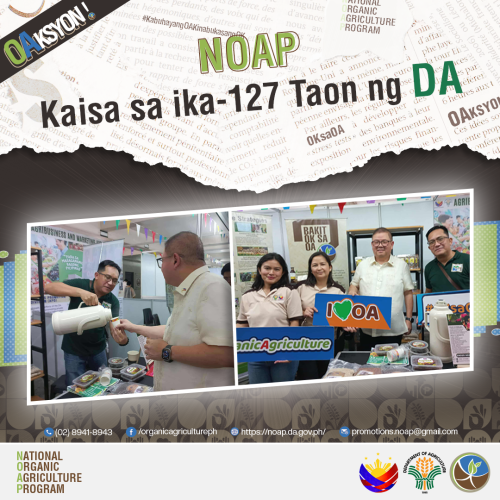
NOAP Kaisa sa ika-127 Taon ng DA
NOAP Kaisa sa ika-127 Taon ng DA By Crissel Tenolete, APD-NOAP Nakiisa ang National Organic Agriculture Program (NOAP) sa pagdiriwang ng ika-127 anibersaryo ng Kagawaran ng Pagsasaka na pormal na sinimulan noong Hunyo 23, 2025 sa DA-Central Office, Elliptical Road, Diliman, Quezon City. Itinampok at ibinida ng DA-NOAP, kasama si Severino Arrojado Pepito mula sa continue reading : NOAP Kaisa sa ika-127 Taon ng DA

NOAP and Naturland Strengthen Ties to Open New Doors for Filipino Organic Farmers
NOAP and Naturland Strengthen Ties to Open New Doors for Filipino Organic Farmers By Dale Russeth, APD-NOAP The National Organic Agriculture Program (NOAP) is taking bold strides to boost the presence of Philippine organic products on the local and global stage—thanks to its deepening partnership with Naturland, one of the world’s leading organizations in organic continue reading : NOAP and Naturland Strengthen Ties to Open New Doors for Filipino Organic Farmers
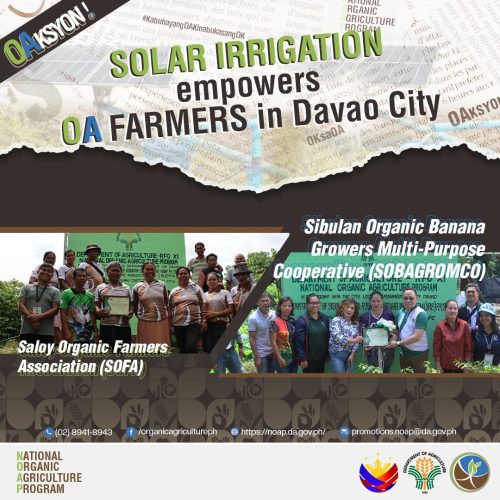
Solar Irrigation empowers OA farmers in Davao City
Solar Irrigation empowers OA farmers in Davao City by: Feliz Amanda C. Lim and Hannah Erika Estrada Organic farmers in Davao City now enjoy a more sustainable and efficient water supply, reduced operational costs, and improved agricultural productivity — even during the dry months — thanks to a new Solar-Powered Irrigation System (SPIS). The Saloy continue reading : Solar Irrigation empowers OA farmers in Davao City
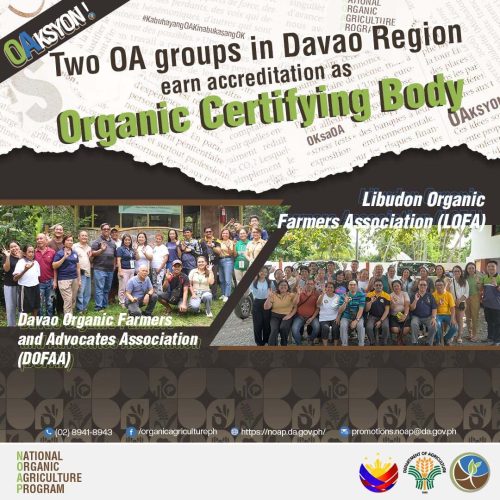
Two OA groups in Davao Region earn accreditation as Organic Certifying Body
Two OA groups in Davao Region earn accreditation as Organic Certifying Body by: Jorenz Necosia and Rhea Joy Mingming, RAFIS11 The Libudon Organic Farmers Association (LOFA) and Davao Organic Farmers and Advocates Association (DOFAA) have officially been recognized as Participatory Guarantee System – Organic Certifying Bodies (PGS-OCB) by the Department of Agriculture – Bureau of continue reading : Two OA groups in Davao Region earn accreditation as Organic Certifying Body
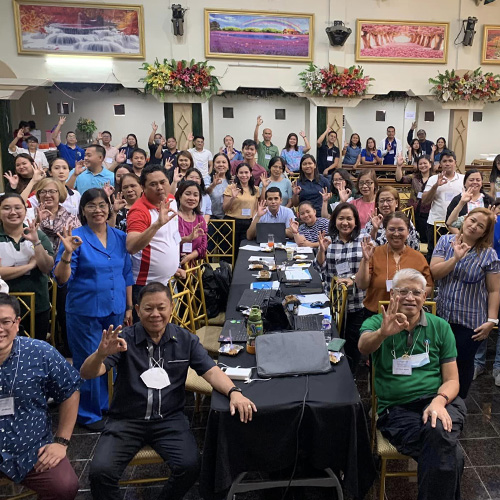
NOAP-NPCO STRENGTHENS, ORGANIC INTERVENTIONS INTENSIFY
NOAP-NPCO STRENGTHENS, ORGANIC INTERVENTIONS INTENSIFY Full-fledged workforce, focused plans and interventions, and hardworking organic practitioners and industry players translate to the country’s intensified organic agriculture. Owing to the recent amendment of the Organic Agriculture Act of 2010 or R.A. 10068, now R.A. 11511, the National Organic Agriculture Program – National Program Coordinating Office (NOAP-NPCO) was continue reading : NOAP-NPCO STRENGTHENS, ORGANIC INTERVENTIONS INTENSIFY
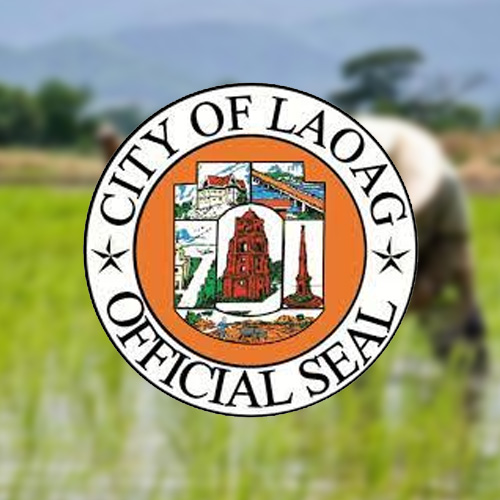
More Ilocos farmers urged to adopt organic farming
More Ilocos farmers urged to adopt organic farming LAOAG CITY – The provincial government of Ilocos Norte is encouraging more farmers to adopt organic farming as it implements its sustainable agriculture program. Provincial agriculturist Norma Lagmay said a special incentive program is provided to those who intend to apply organically-based farming practices. “With funding support from continue reading : More Ilocos farmers urged to adopt organic farming
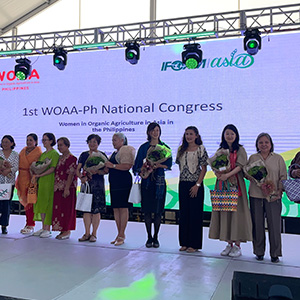
DA-OA chief named Organic Agriculture Ambassador
DA-OA chief named Organic Agriculture Ambassador First Lady Marie Louise “Liza” Araneta Marcos, Senator Cynthia Villar, Senator Maria Imelda Josefa Remedios “Imee” Romualdez Marcos, and DA-National Organic Agriculture Program (NOAP) Director Bernadette F. San Juan were named the country’s Women in Organic Agriculture in Asia in the Philippines (WOAA-Ph) Ambassadors for their organic farming advocacies continue reading : DA-OA chief named Organic Agriculture Ambassador
Vermicompost
Ito ay isang proseso sa paggawa ng organikong pataba sa tulong ng mga bulate (African Night Crawler). Isa itong environment friendly na pamamaraan ng paggawa ng pataba sa organikong agrikultura.
Fermented Fruit Juice (FFJ)
Ang FFJ ay ginagamit pangkundisyon ng lupa at nagbibigay ng sustansya sa halaman. Ito ay gumagamit ng mga prutas na binuburo sa molasses o pulang asukal sa loob ng 7 hanggang 10 araw. Ang pulang asukal, molasses o muscovado ang nagsisilbing pagkain ng mga organismo.
Fermented Plant Juice (FPJ)
Ito ay mula sa iba’t ibang bahagi ng piling halaman na binuro ng sapat na araw gamit ang alinman sa mga sumusunod: muscovado, pulang asukal o molasses. Ang muscovado, asukal at molasses ang tutulong sa pagpaparami ng mga organismong kailangan sa pagtubo ng mga pananim.
Kompost
Ito ay mula sa mga pinagsama-samang bulok na organikong sangkap gaya ng dumi ng hayop, binulok na dahon, malambot o murang tangkay ng mga puno at iba pang halaman, balat ng mga prutas at gulay at iba pa. Ito ay may iba’t ibang uri ng mineral na kailangan ng halaman. Gaya ng copper, molybdenum, baron, iron, manganese at iba pa.
OA PUBLICATIONS
NOAP Featured Video
Success Stories on Organic Agriculture
PGS Infomercial
OA Frequently Asked Questions
-
Mga Madalas Itanong Sa Organikong Agrikultura: Paghahalaman
Sagot Batay sa PNS/BAFS 07:2016
-
Mga Madalas Itanong Sa Organikong Agrikultura: Paghahayupan
Sagot Batay sa PNS/BAFS 07:2016
-
Ano ang maipaglilingkod ng NOAP?
Sagot Batay sa PNG/NOAP 10:2023
Produced by:
Regional Agriculture and Fishery Information Section – DA CARAGA Region

